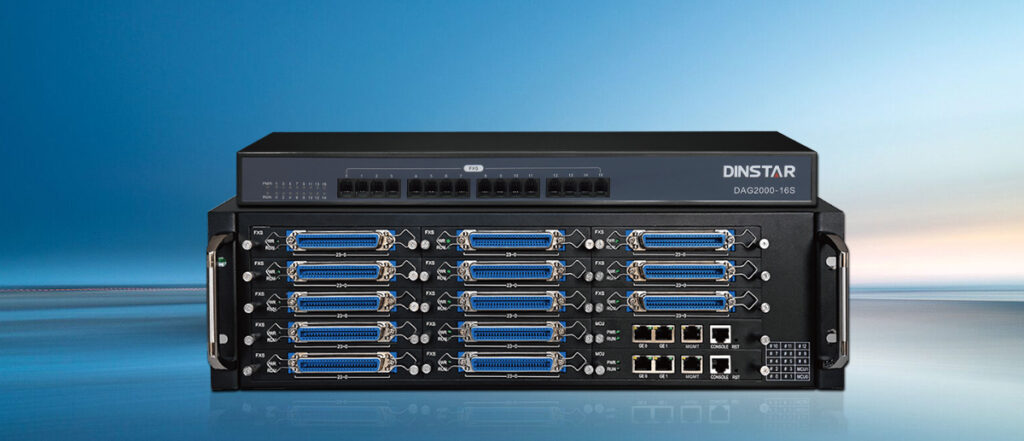In today’s digitally connected business landscape, maintaining seamless communication is no longer an option—it’s a necessity. Whether you’re a small startup or a large enterprise, finding the right tools to streamline voice communication can directly impact your productivity and customer satisfaction. One such essential tool is the GSM Gateway.
But with so many options available—like 2 Port GSM Gateways, 8 Port GSM Gateway, or even 32 Port GSM Gateways—how do you know which one suits your business best? In this blog, we’ll help you navigate through the options and guide you on how to choose the right GSM Gateway for your business.
What is a GSM Gateway?
A GSM Gateway, also known as a SIM Gateway, is a device that bridges the gap between traditional telephone networks and GSM networks. It allows you to route calls from a VoIP or PBX system through SIM cards, effectively reducing call costs and expanding your communication reach, especially in areas with limited wired infrastructure.
Key Functions:
- Connects VoIP/PBX systems to GSM networks
- Enables direct calling to mobile numbers
- Reduces telecom costs by using GSM trunks
- Supports call routing, SMS, and failover mechanisms
Why Your Business Needs a GSM Gateway
If your organization makes a high volume of calls to mobile numbers—such as sales calls, customer support, or field operations—using a GSM Gateway can cut down costs significantly. It also offers the flexibility to work in remote or infrastructure-poor locations where traditional phone lines may not be available.
Types of GSM Gateways Based on Ports
Choosing the right GSM Gateway starts with understanding your call volume and business size. GSM Gateways come in various port configurations:
1. 2 Port GSM Gateway
Ideal for small businesses or startups with low call volumes. It supports two SIM cards and is cost-effective, compact, and easy to deploy.
Use Case: Small call centers, small retail shops, or startups needing basic GSM connectivity.
2. 8 Port GSM Gateway
Designed for medium-sized businesses, this model allows you to connect up to eight GSM SIMs. It supports advanced features like call routing, SMS sending, and web-based management.
Use Case: Customer service teams, medium call centers, logistics, or healthcare providers.
3. 16 Port GSM Gateway
Best suited for businesses with mid-to-high call volumes, the 16 Port GSM Gateway offers the perfect balance between scalability and performance. It supports 16 SIM cards and is ideal for businesses looking to expand operations without jumping directly to enterprise-grade hardware.
Use Case: Expanding call centers, regional telecom operators, or enterprises managing multiple teams.
4. 32 Port GSM Gateway
The 32 Port GSM Gateway is an enterprise-grade solution built for high-density communication. It is loaded with advanced features like IMEI change, USSD support, API integration, remote SIM management, and VPN security—making it suitable for large-scale telephony operations.
Use Case: Telemarketing firms, national-level call centers, enterprise communication hubs, and telecom operators.
Factors to Consider When Choosing a GSM Gateway
1. Call Volume
Estimate your daily call traffic. A higher number of concurrent calls requires more GSM ports. For example, if your team makes over 100 calls a day, a 32 Port GSM Gateway is a better fit than a 2 Port model.
2. Scalability
Choose a GSM Gateway that can grow with your business. If you’re expanding, consider devices with modular ports or stackable architecture.
3. Network Compatibility
Make sure the gateway is compatible with local telecom networks and supports 2G, 3G, or 4G LTE as required.
4. VoIP System Integration
Your gateway should integrate smoothly with your IP PBX or SIP server. Most Dinstar GSM Gateways are SIP-compliant and offer plug-and-play compatibility.
5. Management Features
Look for a device with a user-friendly web interface, remote management, CDR (Call Detail Records), SMS capabilities, and real-time monitoring.
6. Security
Opt for a GSM Gateway that supports VPN, firewall rules, and IP blocking to prevent unauthorized access.
7. Cost Efficiency
Evaluate your total cost of ownership. Don’t just look at the hardware price—consider operational costs, call charges, and future upgrade expenses.
Why Choose Dinstar GSM Gateway?
Dinstar is a trusted name in telecom infrastructure, offering reliable and feature-rich GSM Gateways tailored to various business needs. Whether you need a 2 Port GSM Gateway or a high-density 32 Port SIM Gateway, Dinstar provides options with:
- SIP & IMS compatibility
- Stable call routing
- Easy web-based configuration
- SMS API support
- Multi-language user interface
- Remote SIM management
Conclusion
Choosing the right GSM Gateway is key to ensuring cost-effective, reliable communication for your business. Whether you need a 2, 8, 16, or 32 Port model, the right solution depends on your call volume, network setup, and future growth plans. A well-chosen gateway—like those from Dinstar—can streamline operations, reduce telecom costs, and keep your teams connected at all times. Make a smart investment today to power up your business communication for tomorrow.



